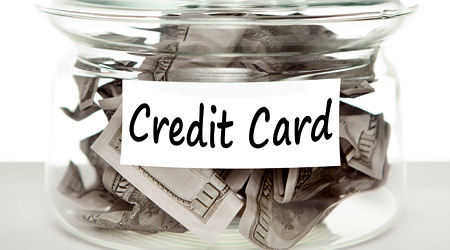Is Credit Card Insurance a Good Idea?

When you have obligations, the thought of not being able to meet them can be frightening - especially when they are financial obligations. Many people worry about what would happen if they were unable to make their credit card payments. This concern is what leads many to agree to credit card insurance plans.
Credit Card Payment Protection
A credit card payment protection plan is one that purports to make your minimum payment for you, if you become unable to do it yourself. Most credit card insurance plans are offered through credit card issuers. So, you would sign up for a plan with each of your credit cards. Then, according to the literature issuers send, if you lose your job or become injured and can't make payments, your minimum payments will be covered.
Most of these plans cost a portion of your balance. Some plans charge a portion of your new balance each month, but many others charge you based on your entire balance. If your plan charges 79 cents for every $100 you have as your balance, you can see how it would start adding up. If you had a balance of $2,500 on your credit card, you would pay $19.75 each month for payment protection. The more the credit card issuer charges for payment protection, and the higher your balance, the greater your bill.
For the most part, payment protection charges are added to your balance - where you pay interest on the expense. If your payment protection plan cost puts you over your credit limit, it can trigger an additional fee. When you sign up for payment protection, you need to be prepared for these costs.
Is Credit Card Payment Protection Worth It?
Before you sign up for credit card payment protection, you should consider the pros and cons related to credit card payment protection plans. Make sure that the plan will help you with your financial goals. The most important thing to do is check the terms and conditions related to the payment protection plan. Many plans have very stringent requirements, and even if you are fired from your job or become disabled, your payment plan may not be in effect.
Instead of paying money each month on a payment plan, you could set that money aside in a high yield savings account, or use it to boost your current emergency fund. Then, instead of paying interest on it, you would be earning it. You could use it to make emergency payments if needed, rather than paying to a credit card issuer who may not pay out on a technicality.
Of course, if you don't carry a balance, then credit card payment protection doesn't cost anything. However, if you don't carry a balance, you don't need protection, anyway. Plus, some card issuers are quite picky, not applying the card protection payments to balances acquired after you start receiving benefits from the plan.
Another consideration is that credit card debt is unsecured debt. This means that credit card companies cannot force you to sell your home to pay off your debt. They can sue you for what you owe, but if there is nothing for them to take, you cannot be forced to part with some of your other assets.
In the end, most people are probably better off saving up money in an emergency fund and paying off credit card debt as quickly as possible. That way, the issue of credit card protection becomes moot.







